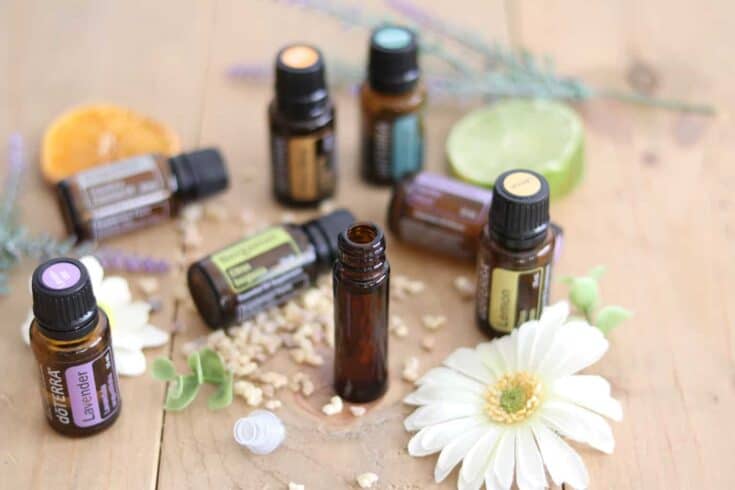
The Top Alternative Medicines for Stress and Anxiety
Written: Editor | August 3, 2023

Herbal Supplements
Herbal Supplements for Stress Relief
In today's fast-paced world, stress and anxiety have become common issues affecting people's well-being. While there are various treatment options available, many individuals are turning to alternative medicines, such as herbal supplements, to alleviate their symptoms. These supplements are derived from natural sources and have been used for centuries for their medicinal properties.
Benefits and effectiveness of herbal remedies for anxiety
Herbal remedies are known for their calming and soothing effects on the mind and body. They can help reduce anxiety symptoms by promoting relaxation and supporting the body's natural stress response. Some popular herbal supplements for anxiety include:
-
Valerian root: Valerian root has been used for centuries to promote relaxation and relieve insomnia. It is believed to work by increasing the levels of gamma-aminobutyric acid (GABA) in the brain, a neurotransmitter that helps regulate anxiety.
-
Lavender: Lavender is known for its calming scent and has been used in aromatherapy to reduce stress and anxiety. It can be taken as an essential oil or in supplement form.
-
Chamomile: Chamomile is a popular herbal remedy for its calming properties. It is often consumed as a tea and can help reduce anxiety and promote better sleep.
-
Ashwagandha: Ashwagandha is an adaptogenic herb that helps the body cope with stress. It has been used in Ayurvedic medicine for centuries and is believed to reduce anxiety by lowering cortisol levels.
Recommended dosage and precautions
When using herbal supplements for stress and anxiety, it is important to follow recommended dosages and consult with a healthcare professional, especially if you are taking any medications or have underlying health conditions. The efficacy of herbal remedies can vary, and it is important to choose high-quality products from reputable sources.
It is worth noting that herbal supplements may take time to show their full effects, and individual results may vary. It is also important to practice self-care and incorporate other stress management techniques, such as exercise, meditation, and a healthy diet, alongside herbal supplements.
In conclusion, herbal supplements can offer a natural and alternative approach to managing stress and anxiety. However, it is important to approach them with caution and seek professional advice when necessary. By incorporating herbal remedies into a holistic approach to well-being and stress management, individuals can find relief and improve their overall quality of life.

Mind-Body Techniques
When faced with the daily grind and the pressures of life, it's no surprise that stress and anxiety have become increasingly common. In addition to seeking therapy or medication, many individuals are turning to alternative treatments to alleviate their symptoms. One such approach is the use of mind-body techniques.
Mind-Body Techniques for Relaxation
Relaxation techniques such as deep breathing exercises, progressive muscle relaxation, and guided imagery can be effective ways to reduce stress and anxiety. These techniques focus on calming the mind, relaxing the body, and promoting a sense of tranquility. By incorporating deep breathing exercises into your daily routine, you can activate the body's relaxation response and create a sense of calm. Taking slow, deep breaths can slow down your heart rate and lower your blood pressure, helping you feel more centered and in control.
Using meditation and deep breathing exercises to reduce stress
Meditation has been practiced for centuries and is known for its ability to promote relaxation and reduce stress. By focusing your attention on your breath, a specific word or phrase, or an object, you can quiet the mind and induce a state of deep relaxation. Regular meditation practice can help to increase self-awareness, improve concentration, and reduce negative thoughts and emotions. Deep breathing exercises, such as diaphragmatic breathing or the 4-7-8 method, can also be effective in managing stress. These techniques involve inhaling deeply, holding the breath, and exhaling slowly, which can help activate the body's relaxation response and bring about a sense of calm.
The power of yoga and Tai Chi for anxiety relief
Yoga and Tai Chi are ancient practices that combine physical postures, breathing exercises, and meditation to promote relaxation, flexibility, and balance. These mind-body exercises have been shown to reduce stress and anxiety, improve mood, and enhance overall well-being. Through the gentle movements and focus on breath, yoga and Tai Chi can help individuals connect their mind and body, release tension, and cultivate a sense of inner peace. Both practices also emphasize mindfulness, which involves paying attention to the present moment without judgment, aiding in stress reduction and anxiety relief.
In conclusion, mind-body techniques offer alternative approaches to managing stress and anxiety. By incorporating relaxation techniques such as deep breathing exercises, meditation, and mind-body exercises like yoga and Tai Chi, individuals can find relief from their symptoms and achieve a greater sense of calm and balance. It's important to remember that different techniques work for different people, so it may take some experimentation to find the methods that work best for you.

Aromatherapy and Essential Oils
Aromatherapy for Stress and Anxiety
In the fast-paced and demanding world we live in, stress and anxiety have become increasingly common. As a result, many people are turning to alternative medicines to find relief. One popular option is aromatherapy, which involves using essential oils to promote relaxation and alleviate stress and anxiety.
Exploring the calming effects of essential oils
Essential oils are highly concentrated plant extracts that have been used for centuries for their therapeutic properties. When inhaled or applied to the skin, these oils can have a profound impact on your mood and overall well-being. Some of the most common essential oils used for stress and anxiety include lavender, chamomile, bergamot, and ylang-ylang.
Lavender oil, for instance, is known for its calming and soothing effects. Studies have shown that it can reduce anxiety levels and improve sleep quality. Similarly, chamomile oil has been found to promote relaxation and relieve symptoms of anxiety. Bergamot oil, with its citrusy aroma, can help uplift your mood and reduce stress. Ylang-ylang oil, on the other hand, is known for its sedative properties and can help relieve tension and promote relaxation.
Methods of using essential oils for relaxation
There are various ways to incorporate essential oils into your daily routine to ease stress and anxiety. Here are a few popular methods:
-
Aromatherapy diffusers: These devices disperse essential oils into the air, allowing you to inhale their therapeutic scents. Simply add a few drops of your preferred oil into the diffuser, turn it on, and let the calming aroma fill the room.
-
Topical application: Dilute a few drops of essential oil with a carrier oil, such as coconut oil or jojoba oil, and apply it to your skin. Massaging the oil onto your temples, wrists, or neck can help promote relaxation and reduce stress.
-
Bath time: Add a few drops of your favorite essential oil to your bathwater for a soothing and aromatic experience. The warm water and aromatic scent can help calm your mind and relieve tension.
-
Personal inhalers: These small inhalers allow you to carry the scent of your favorite essential oil with you wherever you go. Simply add a few drops of oil to the inhaler, inhale deeply when needed, and enjoy the calming effects.
It's important to note that while essential oils can be beneficial for stress and anxiety, they should be used in moderation and with caution. Some oils may cause skin irritation or interact with certain medications. If you have any underlying health conditions or concerns, it's always best to consult with a healthcare professional before using essential oils.
In conclusion, aromatherapy and essential oils can be effective natural remedies for stress and anxiety. Whether through inhalation or topical application, these oils have the power to promote relaxation, uplift your mood, and improve overall well-being. So the next time you're feeling overwhelmed, consider giving essential oils a try and experience the calming benefits they offer.

Conclusion
In conclusion, there are several alternative medicine approaches that can effectively help manage stress and anxiety. These methods can be used either as standalone treatments or in conjunction with traditional therapies. Whether you choose to try herbal supplements, relaxation techniques, or mind-body practices, it's important to consult with a healthcare professional before starting any new treatment.
The Role of Alternative Medicine in Managing Stress and Anxiety
Alternative medicine approaches play a valuable role in managing stress and anxiety. They focus on holistic well-being, addressing not only the symptoms but also the underlying causes of these mental health issues. Alternative medicine can help reduce stress levels, promote relaxation, and enhance overall mental well-being.
Choosing the right alternative medicine approach for your mental health
When it comes to choosing the right alternative medicine approach for managing stress and anxiety, it's important to consider your individual needs and preferences. Here are a few popular options:
-
Herbal Supplements: Certain herbal supplements, such as chamomile, lavender, and passionflower, have been shown to have calming and anxiety-reducing effects.
-
Relaxation Techniques: Practices like deep breathing exercises, progressive muscle relaxation, and meditation can help promote relaxation and reduce stress levels.
-
Mind-Body Practices: Techniques such as yoga, tai chi, and acupuncture combine physical movement with mental focus to help alleviate stress and anxiety.
-
Aromatherapy: Certain essential oils, such as lavender and lemon balm, have been used for their calming properties and can be used in aromatherapy diffusers or applied topically.
Frequently Asked Questions about alternative medicines for stress
Q: Are alternative medicines safe to use for stress and anxiety?
A: When used as directed and under the guidance of a healthcare professional, alternative medicines can be safe and effective for managing stress and anxiety.
Q: Can alternative medicines be used alongside traditional treatments?
A: Yes, alternative medicines can be used alongside traditional treatments. It's important to inform your healthcare provider about any alternative medicines you are using to ensure they do not interfere with other medications.
Q: How long does it take for alternative medicines to work?A: The timeframe for alternative medicines to work varies depending on the individual and the specific treatment. Some may experience immediate relief, while others may require more time to see results.
Q: Are there any side effects associated with alternative medicines?A: Like any form of treatment, alternative medicines can have side effects. It's important to consult with a healthcare professional and carefully follow the recommended dosages and usage instructions.
Remember, alternative medicine approaches are not a substitute for professional medical care. If you are experiencing severe or persistent symptoms of stress and anxiety, it's important to seek help from a qualified healthcare provider.



